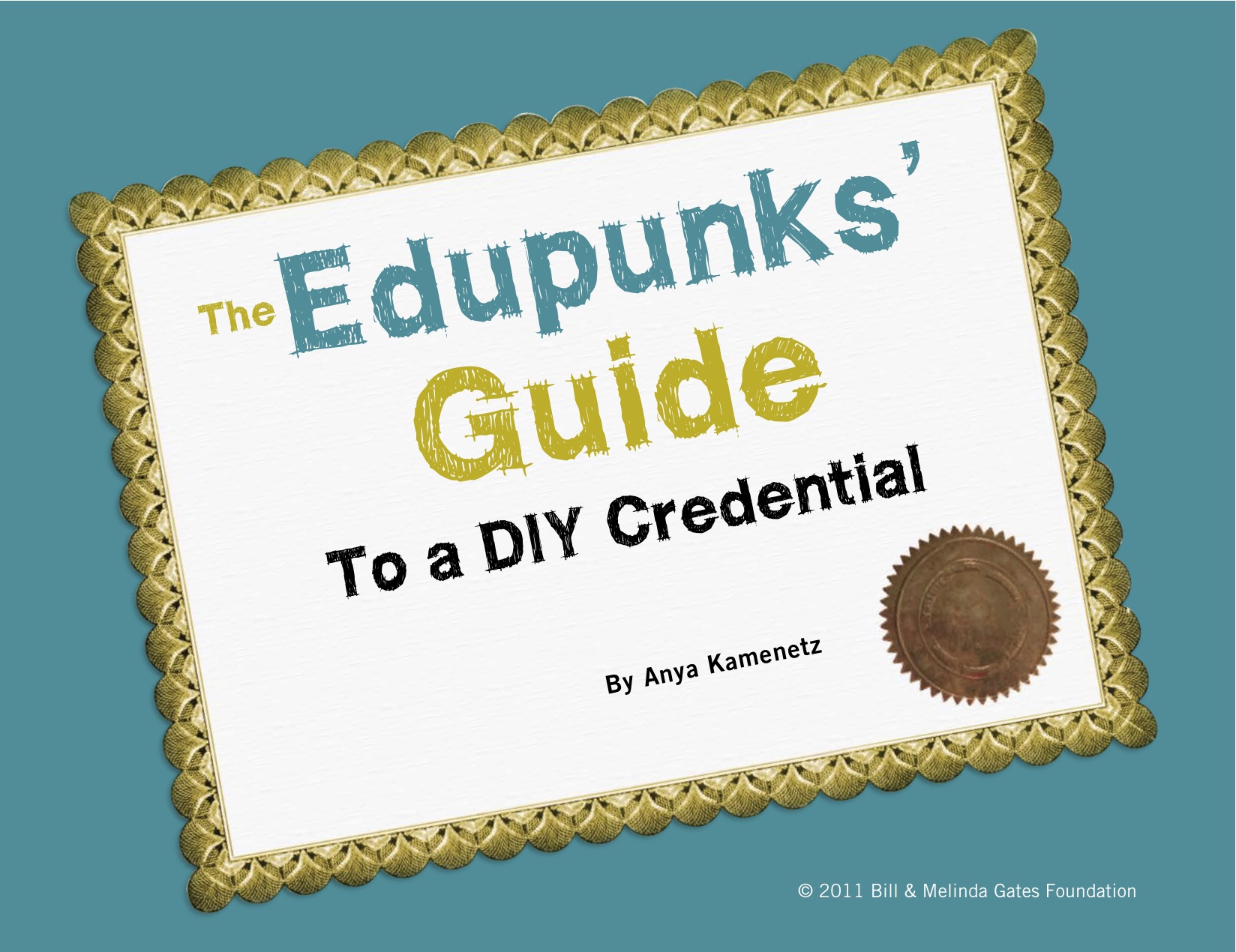I’m very excited to announce that The Edupunks’ Guide is now available for free download as a nicely designed PDF and in plain-text e-reader-compatible versions. There’s also a Kindle version at Amazon.com. TheEdupunksGuide.org will launch later this fall as a site with some features that will hopefully allow people to comment on, annotate and expand the guide. For now, this blog remains the place for Edupunks’ Guide updates.
I want to thank all the readers of this blog who helped cheer on this project. I hope that you’ll find it useful. Either way, let me know what you think!
WHAT: The Edupunks’ Guide, a 100-page free ebook
WHEN:
Available for free download August 1, EdupunksGuide.org site with community features launches in September
WHO:
Anya Kamenetz, author of Generation Debt and DIY U, named a 2010 Gamechanger in Education by the Huffington Post; first book sponsored by the Gates Foundation
WHY:
A first-of-its kind resource for the future of education: a comprehensive guide to learning online and charting a personalized path to an affordable credential (or no credential) using the latest innovative tools and organizations. Real life stories and hands-on advice for today’s students, whether you’re looking at college for the first time, going back for a credential, or pursuing lifelong learning.
Highlights:
- A series of tutorials: How to Write a Personal Learning Plan, How to Teach Yourself Online, How to Build Your Personal Learning Network, How to Find a Mentor, How to Get a Credential, How To Demonstrate Value to a Network.
- The DIY Degree: A Degree At Your Own Pace (18 months to 18 years) at 81% Off Retail
- 7 Ways to Get College Credit Without Taking a College Course/7 Ways to Learn College Material Without Taking a College Course


edupunk’s guide thanks
yes..you are right.very useful info.
ah.
thank you Anya.
Thanks for your work.
The Sribd website (http://www.scribd.com/doc/60954896/EdupunksGuide) requires personal data as a must to let one download the book:
I found it a bit unfair by Scribd, it looks like a way to pay the book with one’s personal data (a very valuable good in today’s market).
Then I could freely download the guide here (hope it can useful for other readers):
http://www.smashwords.com/books/view/77938.
(by the way, the .rtf version seems not to work; .pdf is ok)
Thank you again,
BM
I encourage you to put this info online as a wiki instead of a final “published” website.
1. As a resource directory in a fast-changing area it could use regular updating.
2. Easier to manage/add cross-referencing would be useful.
3. I think some more structuring/framing content could make what you have really useful, and a wiki environment would make it easier to add/use this without having to re-do everything else.
http://webseitz.fluxent.com/wiki/EdupunksGuideToADiyCredential
Hi Bill, thanks, I’m considering it. My main problem is maintenance time–i dont know if i have the time to monitor and edit a large volume of contributions on an ongoing basis, nor do I have funding commitment for hosting past 1 year. What if I took the most useful parts of the guide and submitted them to an existing wiki like Wikieducator or Wikiuniversity?
Adding to an existing wiki would be a cool idea.
(Though note the point of a wiki is that *you* don’t need to edit, although if there’s a spam problem and not much real usage you could be left with a mess.)
Anya, thanks for writing this. I shelled out the 99 cents at Amazon, and hope others do too, to support your writing. I think there’s another movement that will grow to replace credentials as the sine qua non of credibility with respect to education. That’s the professional portfolio, connected to professional social nets. I wrote about the idea here: http://highered.blogspot.com/2011/11/end-of-preparation.html
Keep up the great work!
dave